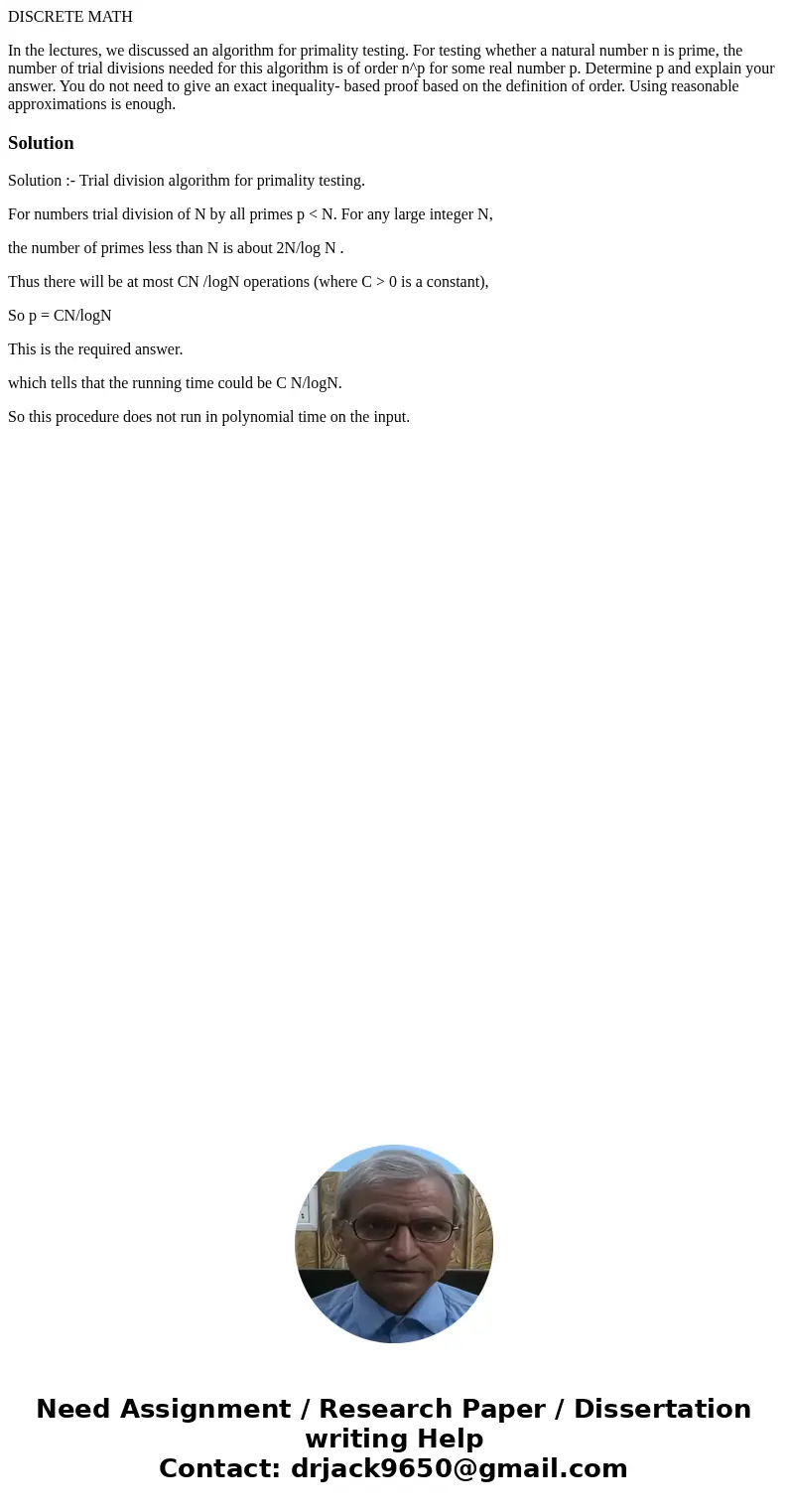DISCRETE MATH In the lectures we discussed an algorithm for
DISCRETE MATH
In the lectures, we discussed an algorithm for primality testing. For testing whether a natural number n is prime, the number of trial divisions needed for this algorithm is of order n^p for some real number p. Determine p and explain your answer. You do not need to give an exact inequality- based proof based on the definition of order. Using reasonable approximations is enough.Solution
Solution :- Trial division algorithm for primality testing.
For numbers trial division of N by all primes p < N. For any large integer N,
the number of primes less than N is about 2N/log N .
Thus there will be at most CN /logN operations (where C > 0 is a constant),
So p = CN/logN
This is the required answer.
which tells that the running time could be C N/logN.
So this procedure does not run in polynomial time on the input.

 Homework Sourse
Homework Sourse